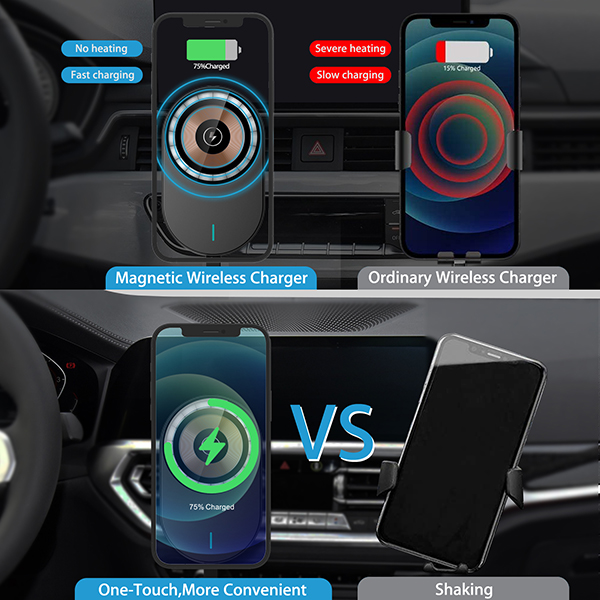Wireless Charging: The Future of Device Power As technology advances, the way we power our devices is changing. Wireless charging has grown in popularity over the past few years, and it's not hard to see why. It offers a more convenient and efficient solution than traditional wired chargers - no cords or wires required! With this new technology, you can easily keep your phone and other electronic devices powered on without fiddling with cables or plugging anything in. The concept behind wireless charging is simple: An electromagnetic field transfers energy between two objects, such as a device charger and a phone, through magnetic induction. This means that when one object generates a magnetic field near another, an electrical current can be generated in the second object, which can then be used to charge the device. As long as two objects are in close proximity, they will stay charged without any physical contact between them - perfect for those who want their gadgets to be completely wireless! Wireless chargers come in all shapes and sizes, depending on what type of device they're designed for. For example, some may use Qi technology, allowing users to place the phone directly on a special charging pad; while others may require you to connect your device via Bluetooth first, and then start it wirelessly from there.

In addition to being very easy to use, many wireless chargers offer faster charging times than traditional methods, so you don't have to wait for your battery to hit full capacity again! Of course, as with all new technology, there are always some downsides to wireless chargers, such as compatibility issues between certain models or devices that don't support the same frequency ranges needed for successful power transfer over long distances (which can lead to your Requires several different types of chargers) If you have several different types of electronics, you can use compatible cordless chargers). Also, since these systems rely on radio frequency rather than a direct connection (like a USB port), users should be careful where they are stored/used, as strong electric fields can interfere with nearby signals, causing interference issues like dropped calls . Still, despite these hiccups, most consumers seem to be pretty happy with the overall performance of wireless chargers given their convenience factor - allowing people to keep their batteries on even when they're away from home for extended periods of time. Contact, thanks to its portability and more! Without a doubt, this modern innovation certainly opens up a lot of avenues for how we'll power the electronic devices of the future - making sure everything stays fully charged at all times - everyone's sure to love it, right?

Post time: Mar-02-2023







